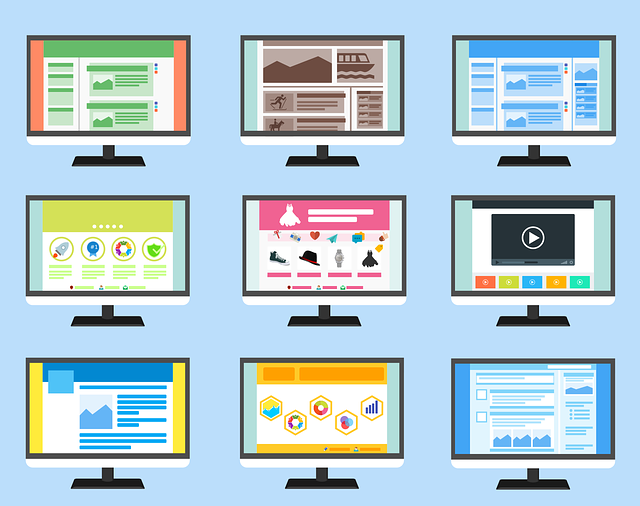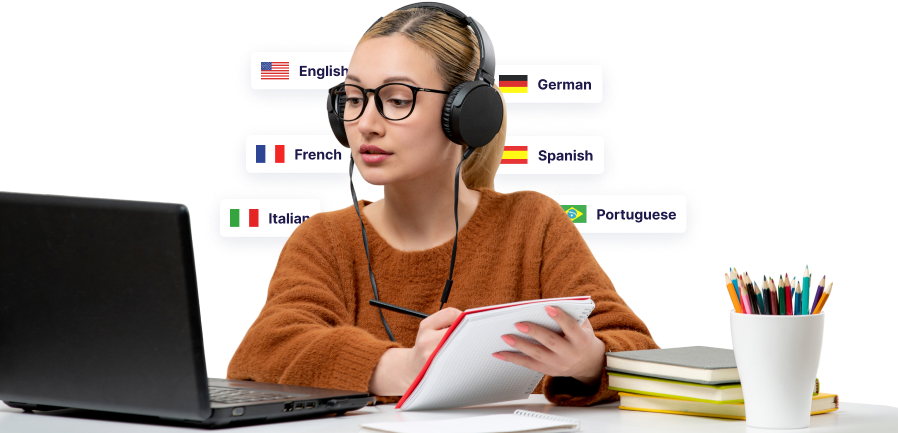Rapid Translate Team
The translation industry does not have extremely rigid guidelines for translators. So, while many insist that college degrees are necessary for translators, that is not always the case. But these degrees offer a straighter route to becoming a professional. So, you may need options if you’re not going for them.
If you’re looking at how to become a translator without a degree, take a go at it. Learn a second language, perfect your skills, and gain some translation experience.
While you may eventually need some certifications, your knowledge will carry you forward. There is a long path to follow; let’s discuss.

Table of Contents
Do You Need a Degree To Be a Translator?
No, you do not necessarily need a degree to be a translator. Degrees add to your qualifications, making your skills more marketable. However, they are not usually a requirement when you’re looking for jobs as a professional. Of course, some employers prefer translators with degrees.
In most cases, professional translators must have a high school diploma or General Educational Development (GED) certificate. However, college degrees are a plus if you intend to work with translation agencies or companies.
This does not mean that you should forfeit degrees when aiming to become a professional translator. Language degrees can give you a footing if you’re starting from scratch. However, you can still succeed in the industry without access to these college degrees.
To become a translator, you’ll first need language skills. You must have an advanced technical understanding of the languages you wish to translate. Besides being able to write and read those languages, you must also understand the grammar. Also, you must understand the vocabulary and idiomatic expressions.
In addition, you must understand how to do the proper research before starting a task. This entails getting the right and relevant information on the topic of interest. Research usually includes watching videos, studying articles, and learning from industry experts.
People skills are another important factor in becoming a translator. The job involves dealing with clients and customers of different cultural backgrounds worldwide. So, you must first know how to build excellent relationships and foster good communication.
You must also have great judgment to become a successful translator. Good judgment is necessary since you’ll face several unclear situations and texts. This is especially important for translators handling official documents, such as USCIS certified translation, where accuracy and adherence to legal requirements are crucial.
So, if you tick all these checkboxes, a college degree will only be secondary. Employers look for the right skillset anyway.
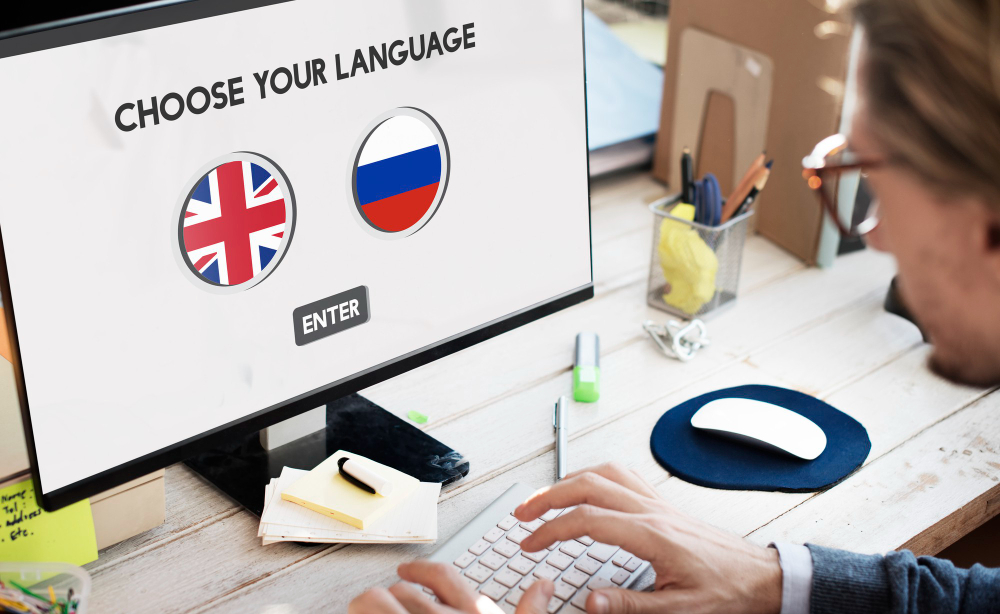
How To Become a Translator Without a Degree in 6 Steps
Getting a college degree is quite expensive and time-consuming. Despite this, some people insist that degrees are crucial for success as a translator. However, many professionals have excelled without getting a degree first.
So, if you have a passion for the field and wish to start without going to college, here is how:
1. Gain Fluency in a Second Language
You must master a second language before moving toward becoming a professional translator. To do this, consider studying the language, getting a tutor, or joining classes. After choosing any language, your target should be to build a strong understanding of the language.
Learn the terminology as well as the grammatical structure of the language. Getting a hang of the culture around the language is also helpful. Also, become fluent in a specific dialect if you aim at translating for a specific location.
Here, people who grow up in bilingual communities or families have great advantages. Of course, speaking a language from birth offers you the luxury of fluency. That notwithstanding, you can also learn a completely new language, even at an advanced age.
2. Take Online Translation Courses
Besides understanding a particular language pair, you’ll still need further training to understand translation. You can get several online courses from universities or platforms like Coursera and Udemy. Here, you’ll get affordable learning opportunities at your convenience.
These sites offer many opportunities to push your career as a translator. Unlike traditional college degrees, these online learning platforms are very affordable. College and university degrees are usually expensive and not affordable to many. Conversely, anyone can afford online courses.
Online translation courses also offer high levels of convenience and flexibility. They allow you to learn on your schedule, and they also let you cater to your other commitments. These courses offer practical training that is useful in the real world. You can augment your language skills by learning about translation and pushing your advantage.
3. Gain Translation Experience
The next move you should take to become a professional translator is to gain experience. Gaining experience helps you develop your knowledge and hone your skills. You can get experience by volunteering in schools, local organizations, and charities. Internships also help to build your skills.
Besides sharpening your skills as a translator, getting experience exposes you to the nooks and crannies of the industry. You can network with other professionals, rub minds, and create partnerships. Subsequently, your experience can help you secure jobs as a translator.
4. Freelance for a While
Becoming a freelance translator is one of the best ways to begin your career in the industry. It provides the chance for you to grow your portfolio while gaining experience. Also, freelancing helps you build a customer base for your own business. As a freelancer, you can offer online certified translations.
You can freelance as a translator in several ways. First, platforms like Upwork and Fiverr help you find online jobs by connecting you with potential clients. Social media sites are also useful for connecting with customers.
However, as a freelancer, you must understand how to write proposals for potential customers. Always ensure that you highlight your skills and your experience. Your proposals should also carry snippets of your past work to show your style and capabilities.
5. Pursue Professional Development
Continuing education is crucial for translators with college or university degrees. However, it is also necessary for translators with no formal degrees. You must pursue professional development to keep up with industry trends.
Workshops and conferences are great ways to develop as a professional. Since these events feature various aspects of the industry, you can learn more. Also, consider following industry news by studying articles and blogs from relevant organizations.
Remaining updated and developing as a professional helps you offer accurate services to your clients. Of course, you can also stay relevant and valuable in the industry.
6. Obtain the Relevant Certifications
Although not always necessary, getting certified as a translator greatly helps your profile. Relevant certifications stand you out from the rest of the industry. To earn certifications, you must satisfy specific requirements. For instance, you must pass a test.
The American Translators Association (ATA) offers translator certification. The association requires that you pass an exam that tests your knowledge of the source languages. The exam also tests your translation and writing techniques. Also, the National Board of Certification for Medical Interpreters (NBCMI) issues certifications for medical translators. To get this certification, you must pass an oral and a written exam to show your competence. You can also try out other third-party certifications.
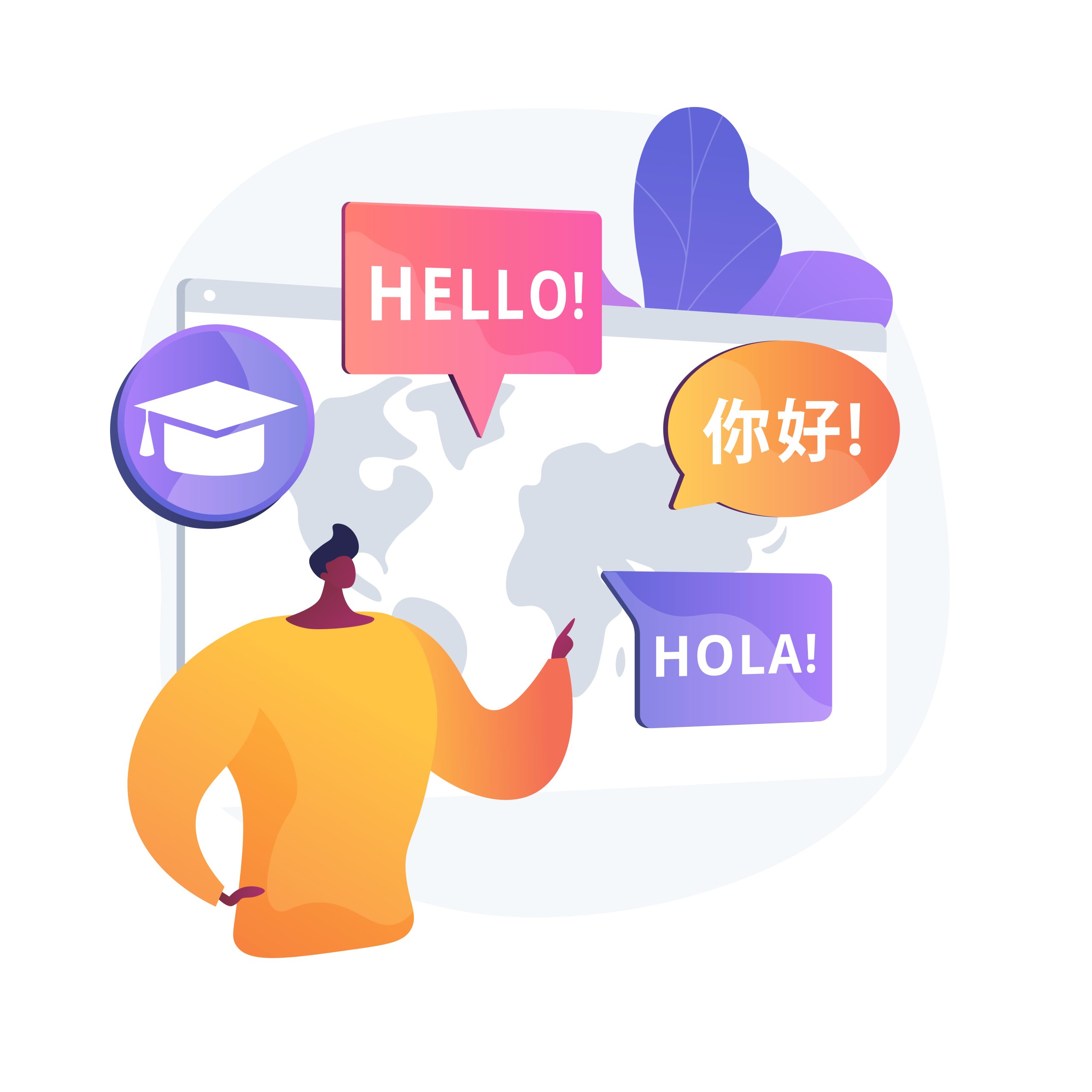
The Qualifications You Need To Become a Translator
What qualifications besides a university or college degree can you use as a translator? This is a popular topic in the translation industry. Employers and clients sometimes insist on a minimum of a high school diploma or a GED certificate.
But again, school degrees or diplomas do not always matter if you already have the skills. Subsequently, auxiliary translation courses are useful and may be preferable to some employers. These qualifications help to reinforce your profile as a professional. Clients and employers sometimes require proof.
Higher certificates like languages, linguistics, or translation degrees improve the effect. Post-graduate qualifications in translation also come in handy. Of course, interviewers will always consider the professional with a higher qualification over others.
For those looking to establish themselves in the industry, gaining experience with a professional translation service can be a valuable step. Working with established agencies provides exposure to different types of translations, enhances skills, and helps build credibility with clients.
The less recognized translation certifications like those you get online can also boost your resume. Ultimately, your skill as a professional sets you apart from your peers. That is why you should prioritize gaining skills and knowledge over gaining qualifications.
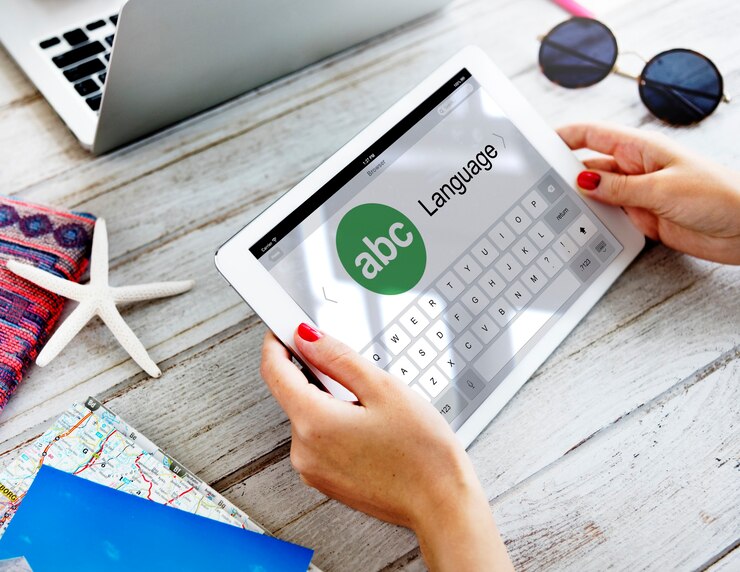
How Long Does It Take to Become a Translator?
It takes several years to learn and build useful translation skills. Building the needed expertise and reputation may also take some more time. While there is no fixed duration to learn everything that makes you a pro, you can always fast-track the process.
The exact time it may take you to become a translator depends on several factors. First, your baseline knowledge of the target and source languages affects your learning duration. People with a more traditional understanding of the languages of interest will typically take less.
Next, your dedication and commitment to the field determine how long you’ll become a pro. Consider dedicating more time to learning the relevant languages and the best practices. You’ll surely get good results in next to no time. Besides understanding how to become a translator without a degree, you must put the necessary work in.
Are you looking for reliable translation services but are unsure which agency to work with? Consider working with Rapid Translate. This online translation service employs professional human translators, offering fast turnarounds on orders.
With its services, the company helps upgrade your global communication capabilities. If you intend to study abroad, grow your business, or build meaningful connections, Rapid Translate puts you through. Order now to enjoy smooth communication!




